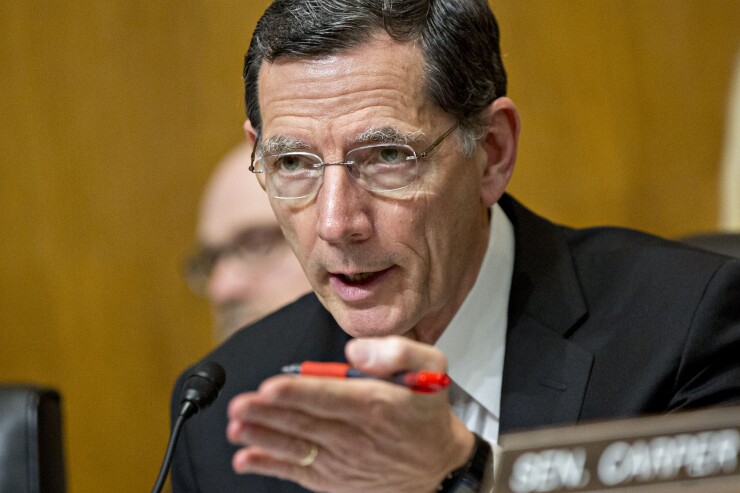Infrastructure leaders need predictable funding to plan for large projects, and uncertainty about the future of federal spending is hampering the ability of state departments of transportation to structure financings that include bonding.
That was the message delivered to lawmakers at a Senate Committee on Environment and Public Works hearing Wednesday by Carlos Braceras, president of the American Association of State Highway and Transportation Officials. Braceras was among several witnesses testifying about the need for federal infrastructure legislation.
“The lack of stable, predictable funding from the HTF (Highway Trust Fund) makes it nearly impossible for state DOTs to plan for large projects that need a reliable flow of funding over multiple years,” Braceras said.
The Highway Trust Fund is running on fumes because the federal gas tax has not been increased since 1993 and more fuel-efficient and alternative fuel vehicles are requiring less fuel for the same miles traveled. So far 22 states have enacted some kind of variable rate
The Fixing America’s Surface Transportation (FAST) Act is expiring in 2020, with many experts saying the U.S. is experiencing a multibillion-dollar infrastructure funding gap every year. Lawmakers have been discussing a new multiyear surface transportation bill for months, and initially many muni market participants were optimistic. But hope has dimmed in recent months as progress appears to have stalled.
Braceras told The Bond Buyer that he doesn’t believe there is momentum on an infrastructure bill.
There remains some hope in smaller measures. On June 26, the committee introduced S.1992, a bill to amend the FAST act to repeal a $7.6 billion rescission of funds set to take place July 1, 2020.
The bipartisan bill is sponsored by Sen. John Barrasso, R-Wyo., and co-sponsored by Sens. Tom Carper, D-Del., Shelley Moore Capito, R-W.Va., and Benjamin Cardin, D-Md.

The rescission was included in the FAST act for budgetary reasons with the intent to reset the budgetary baseline for highway programs to fiscal year 2015 levels, according to AASHTO.
“The rescission effectively results in hard cuts to highway funding—and potentially delays important project construction—because states lose the flexibility to apply their federal funding in line with each state’s investment priorities,” AASHTO wrote.
As Utah’s executive director of transportation, Braceras said his state doesn’t bond against federal money, and instead relies on the state. But for states that use Garvee bonds or Transportation Infrastructure Finance and Innovation Act loans, a long-term spending bill is essential, Braceras told The Bond Buyer.
“Having that long-term bill in place is really important for these states because they’ve committed a portion of their future funds to pay back this debt,” Braceras said.
Lack of clarity from Congress impacts state operations. Utah pays for its projects with state dollars and turns to the federal government for reimbursements, Braceras said. During the shutdown earlier this year, the federal government could not reimburse so states had to draw against state bank accounts.
Lack of clarity from Congress creates a greater degree of uncertainty and makes states less likely to issue bonds, Braceras said.
Sen. Barrasso asked the panelists the effect of Congress failing to enact a multiyear highway bill.
“The impact would be a change in how we do business,” said Luke Reiner, director at the Wyoming Department of Transportation. It would result in slower delivery of smaller projects due to the funding uncertainty, Reiner said.
Sen. Cardin said it was important for his committee to take the lead on a multiyear reauthorization bill, adding that he hoped it was at least five years.
“I hope it’s at least five years — I was whispering to the chairman that it would be nice to get beyond five years as we’ve done in the past,” Cardin said. “But at least five years to get the predictability so that those that are planning major projects know there is a dependable federal partner.”





